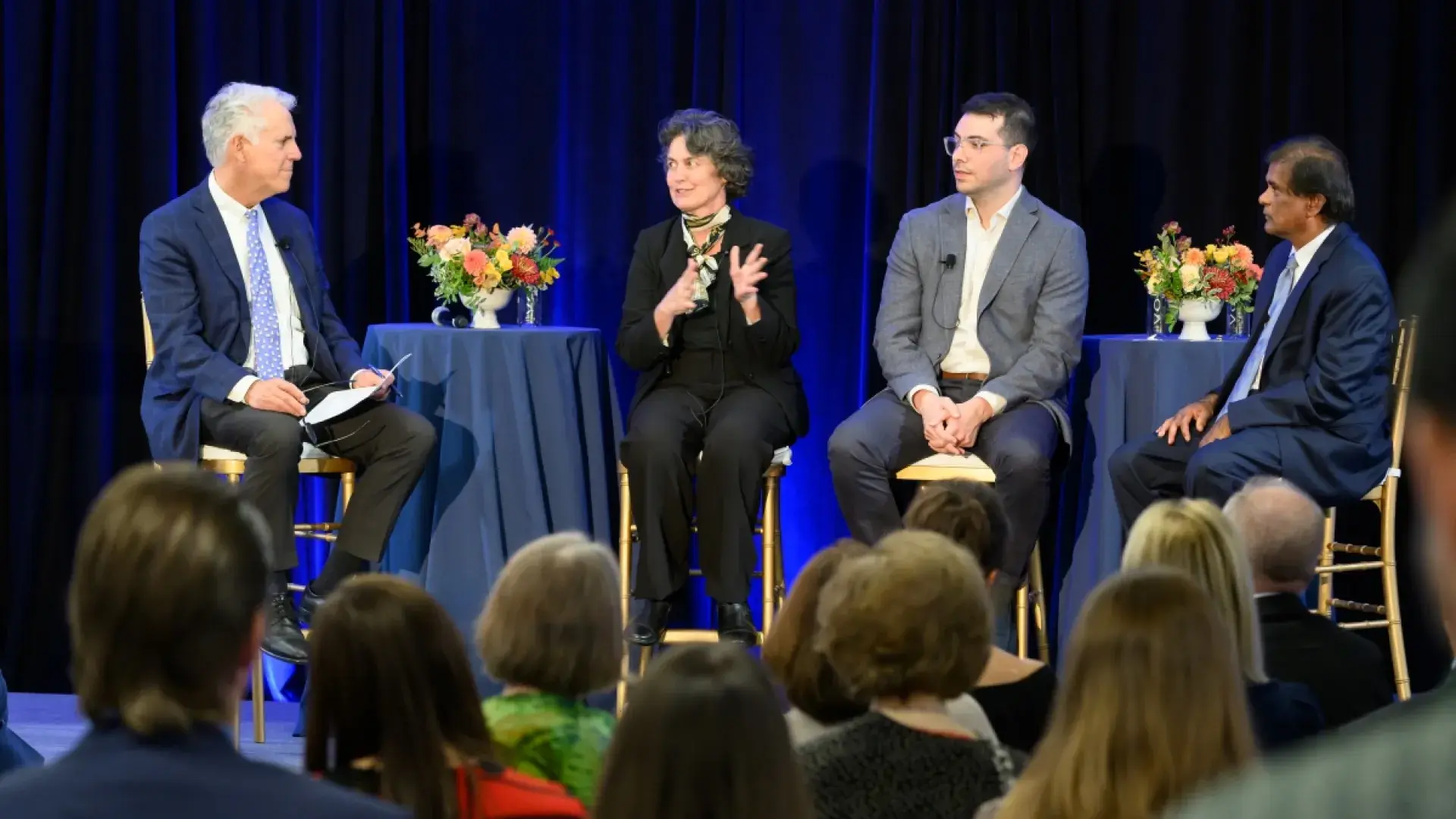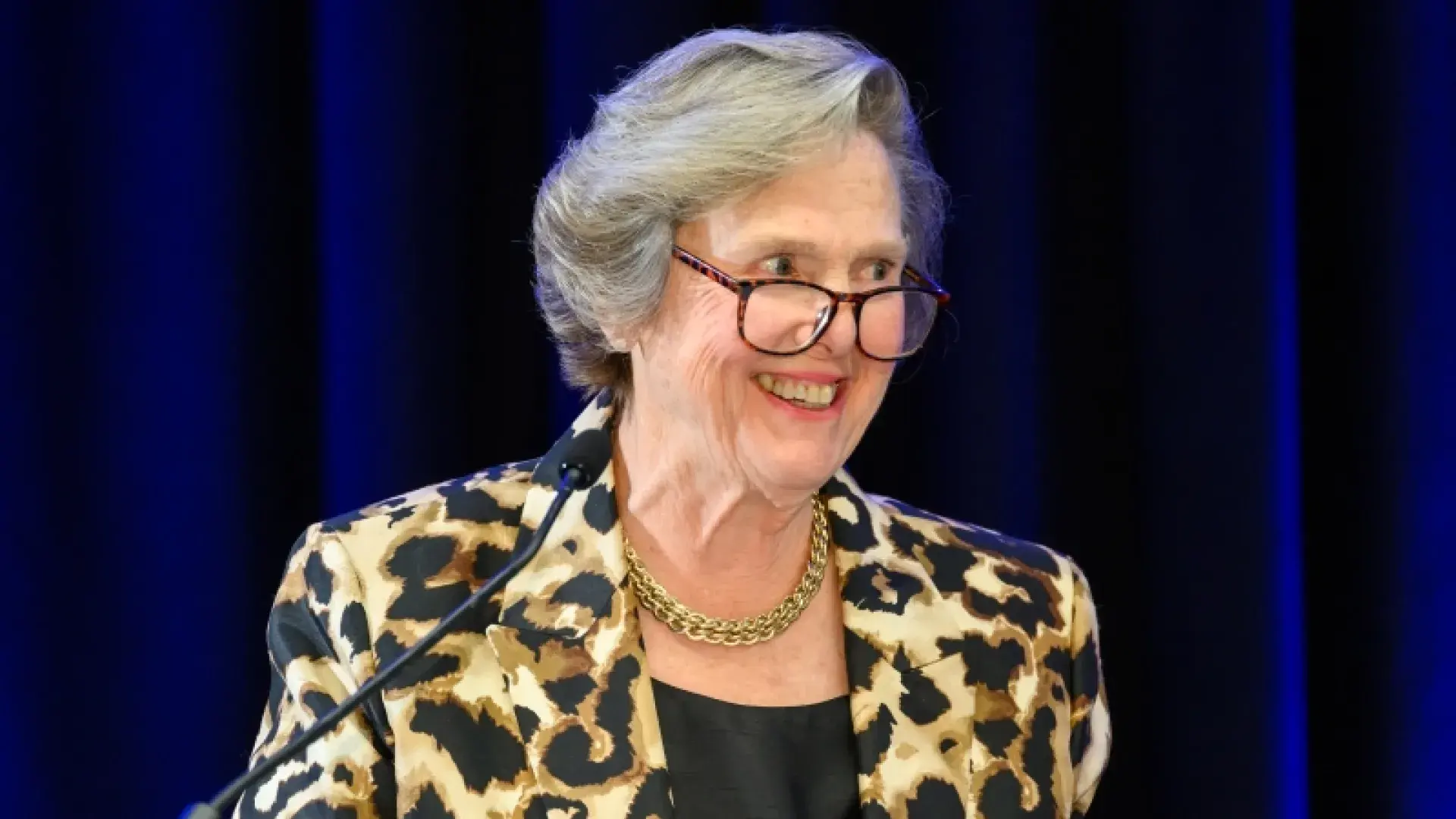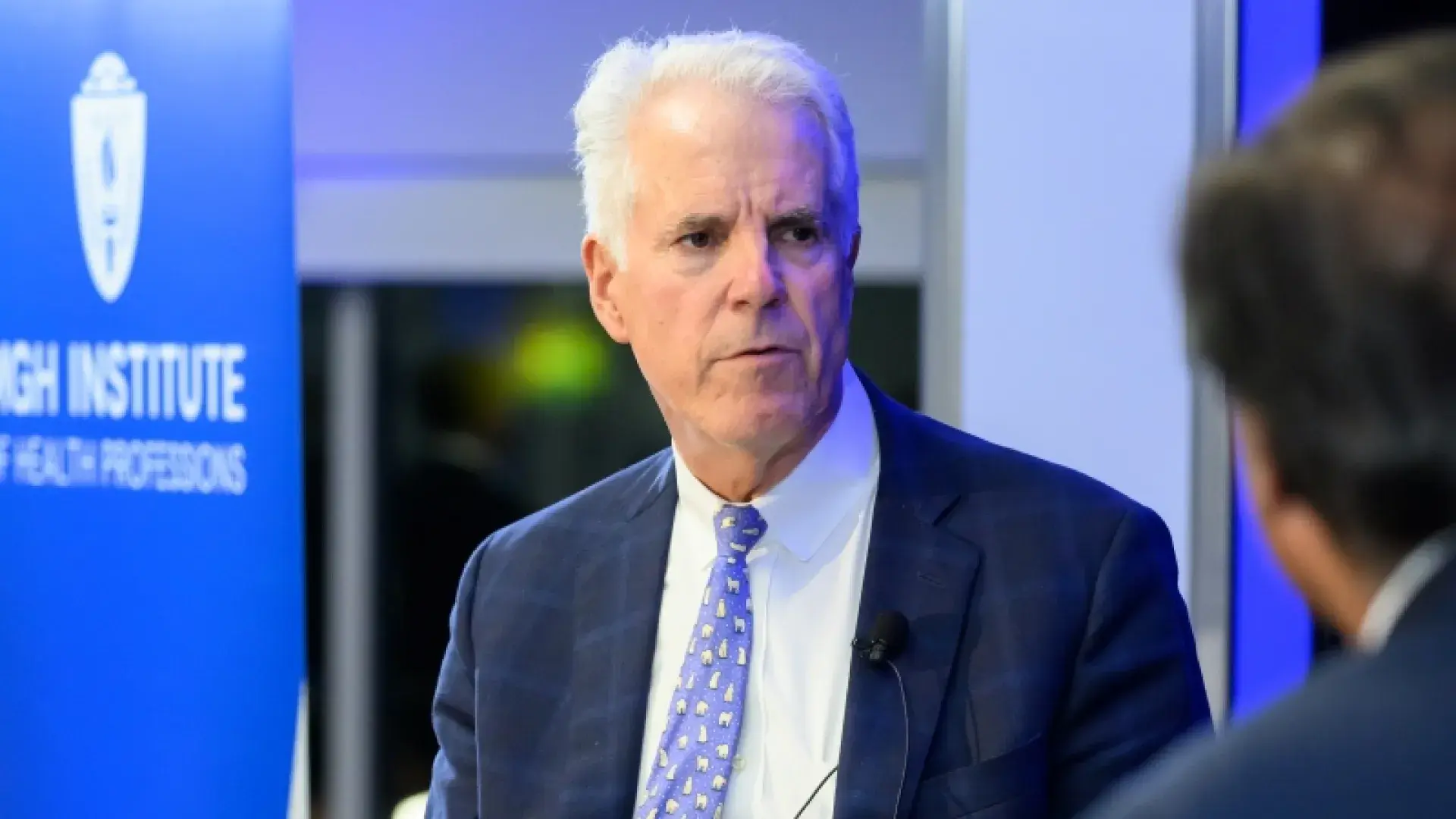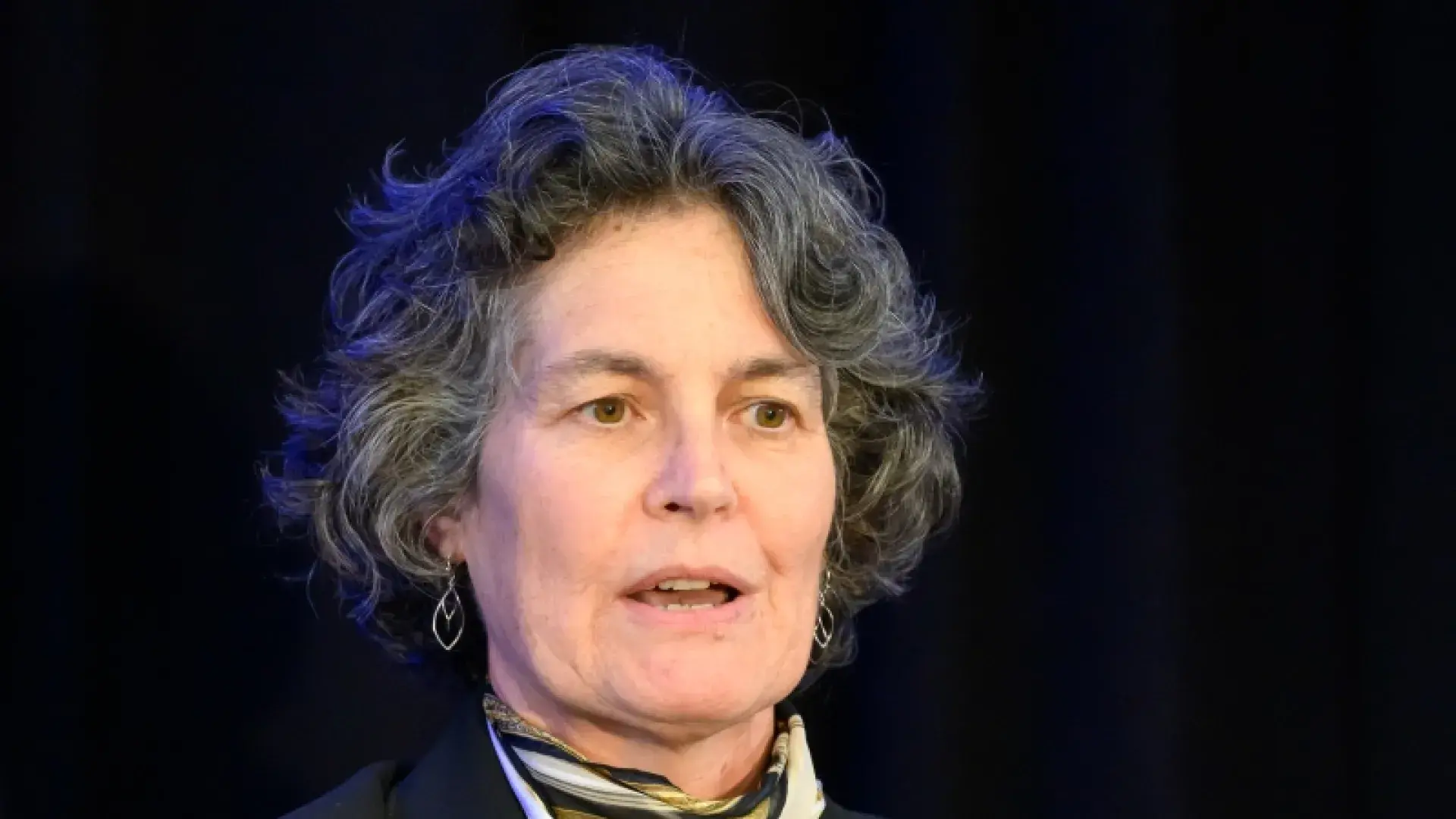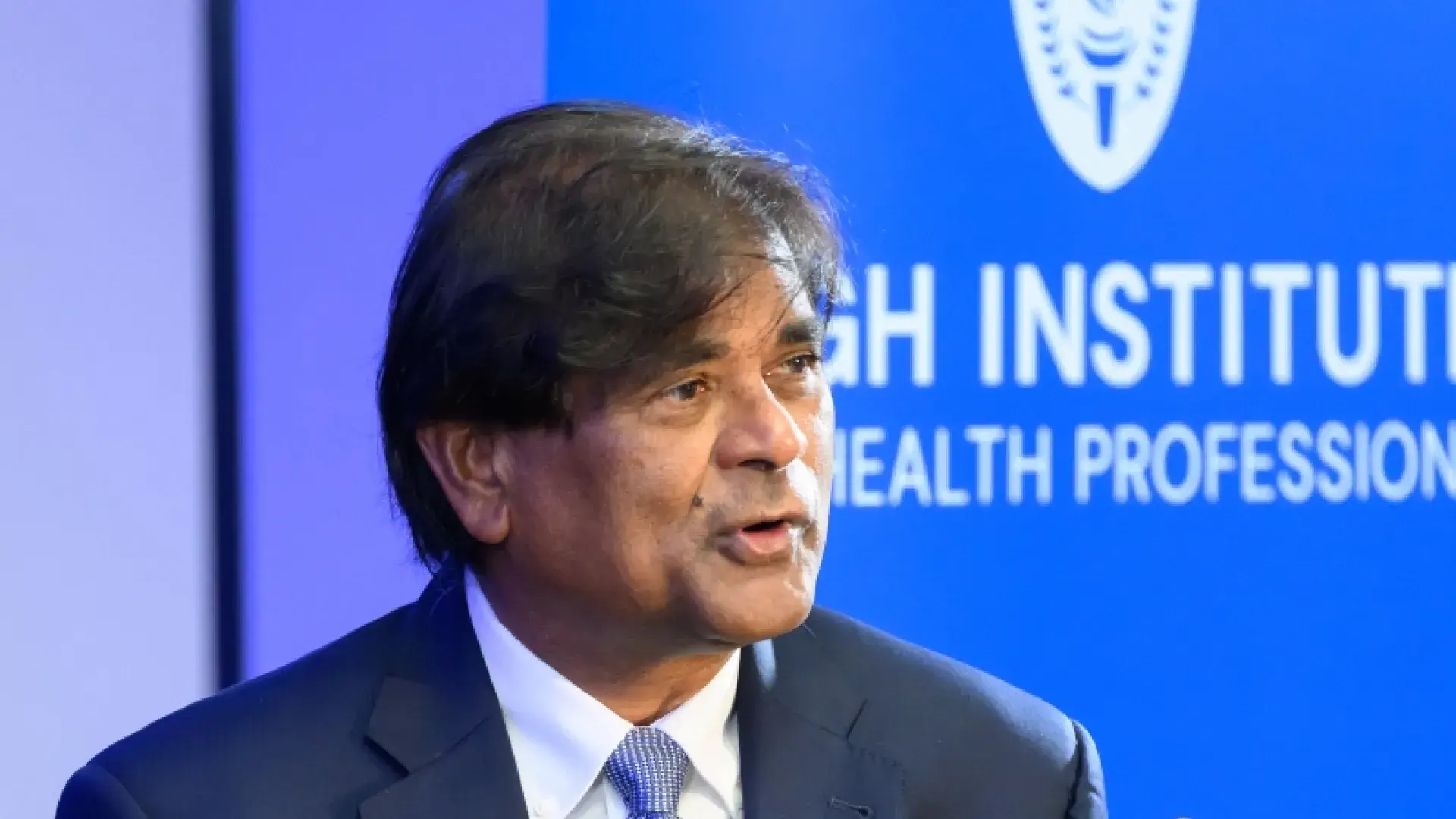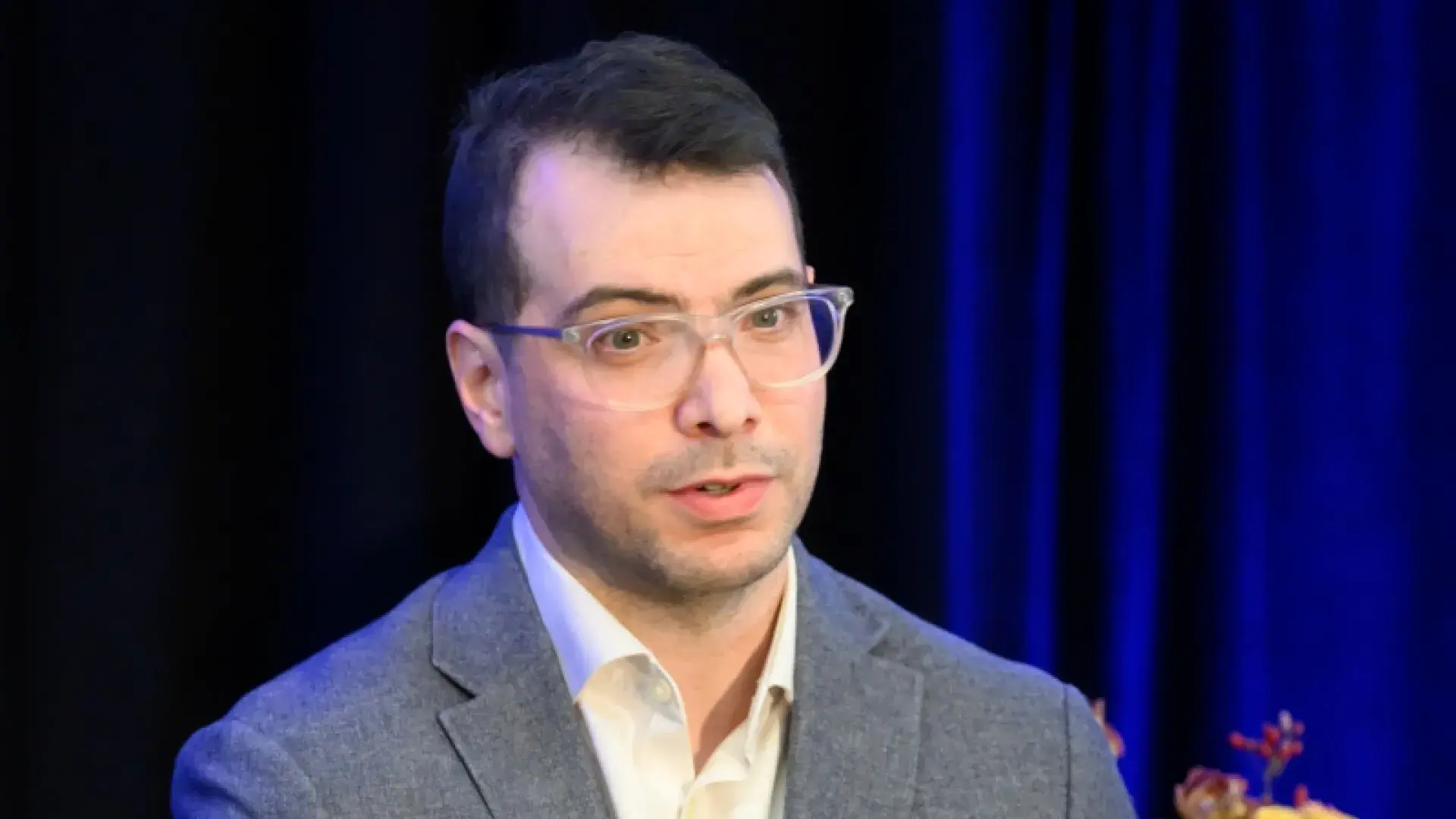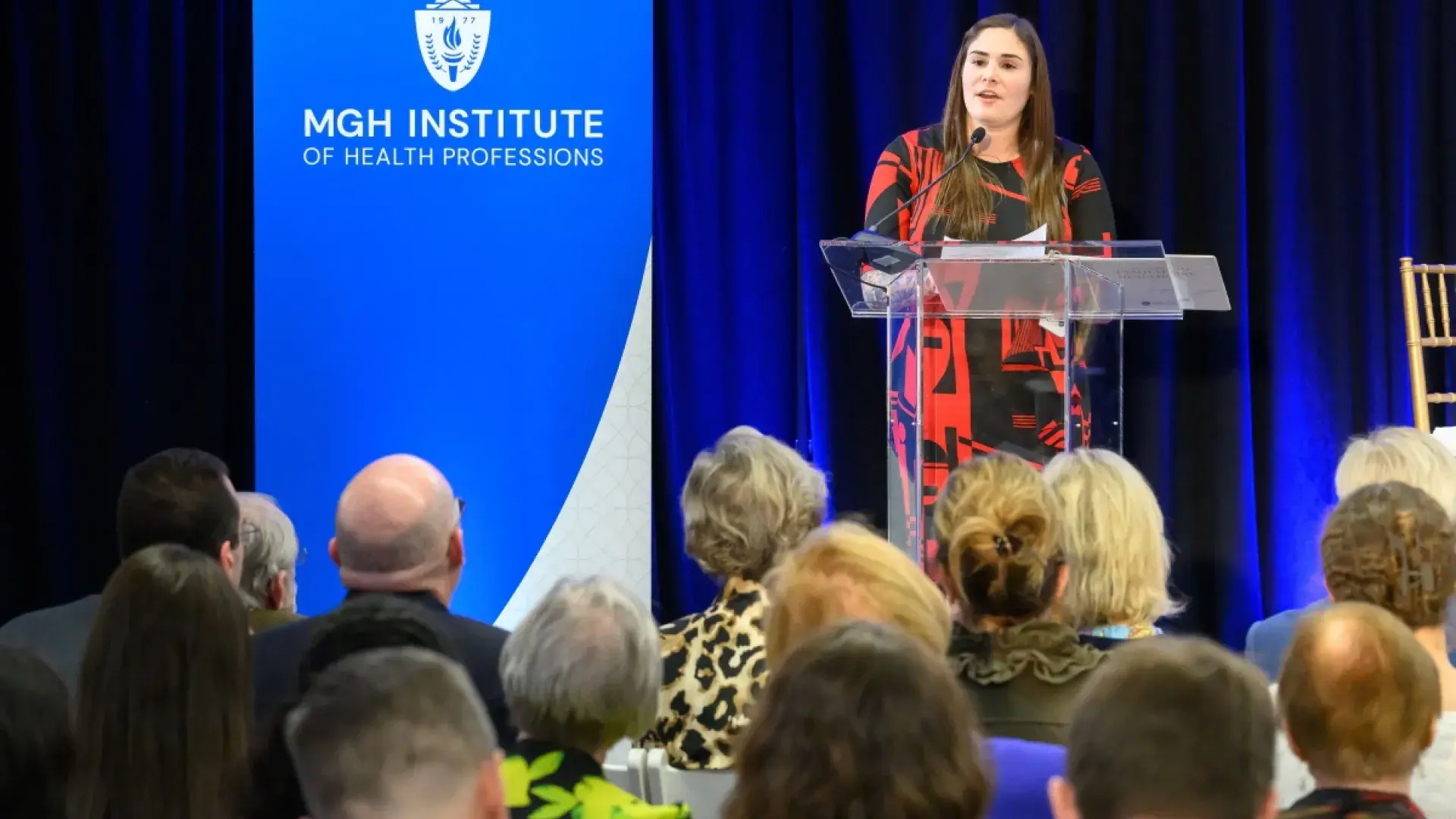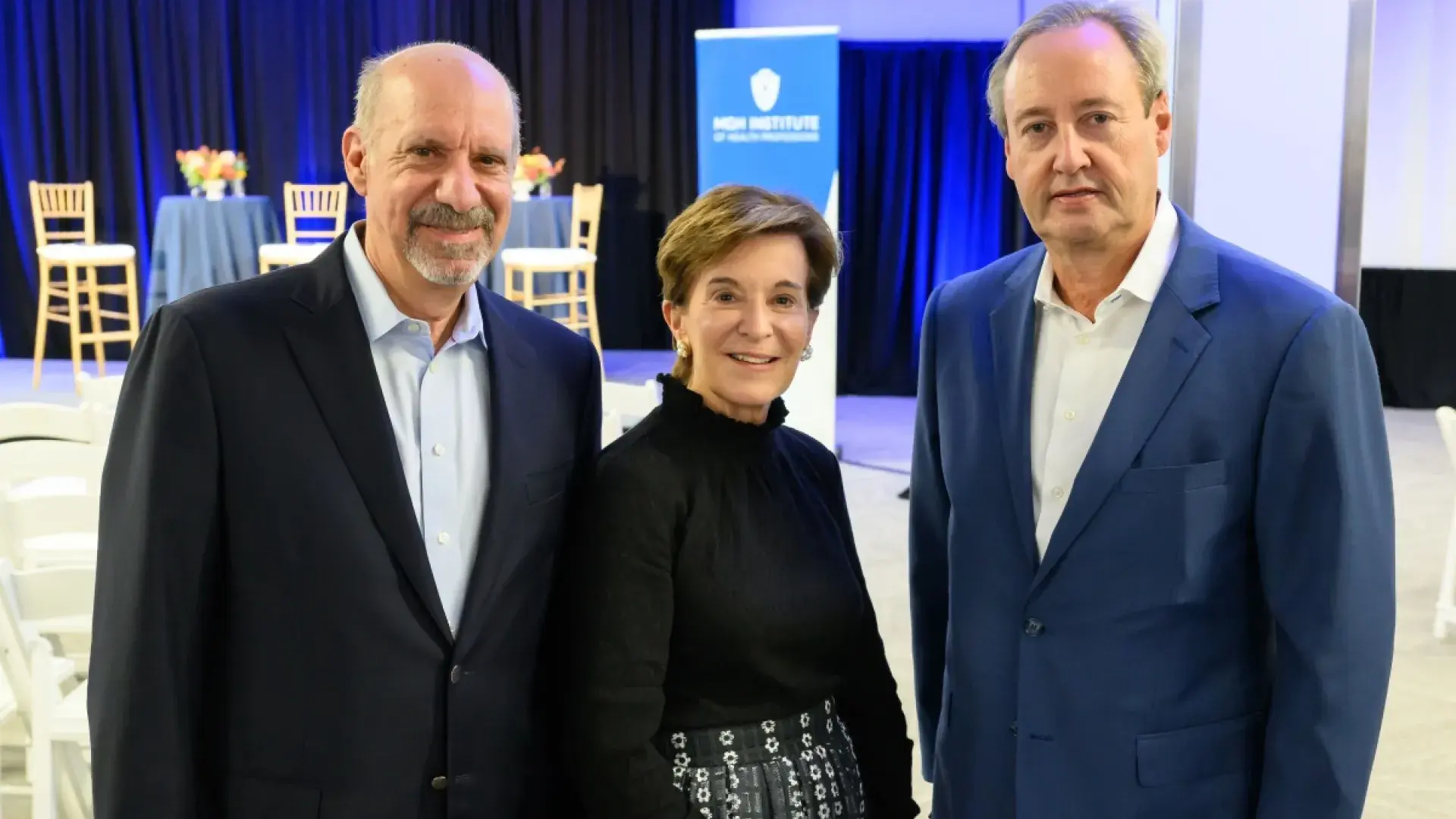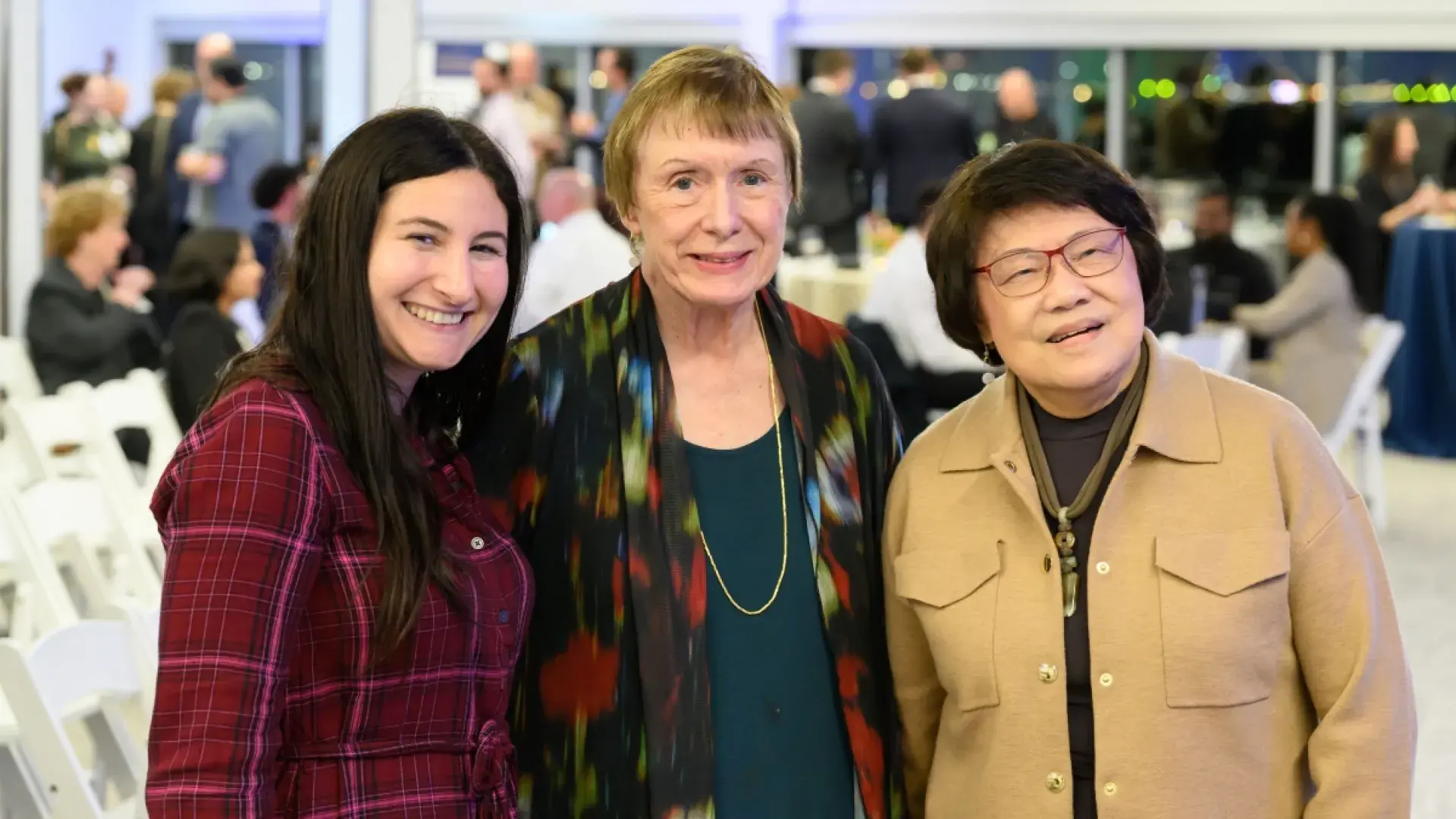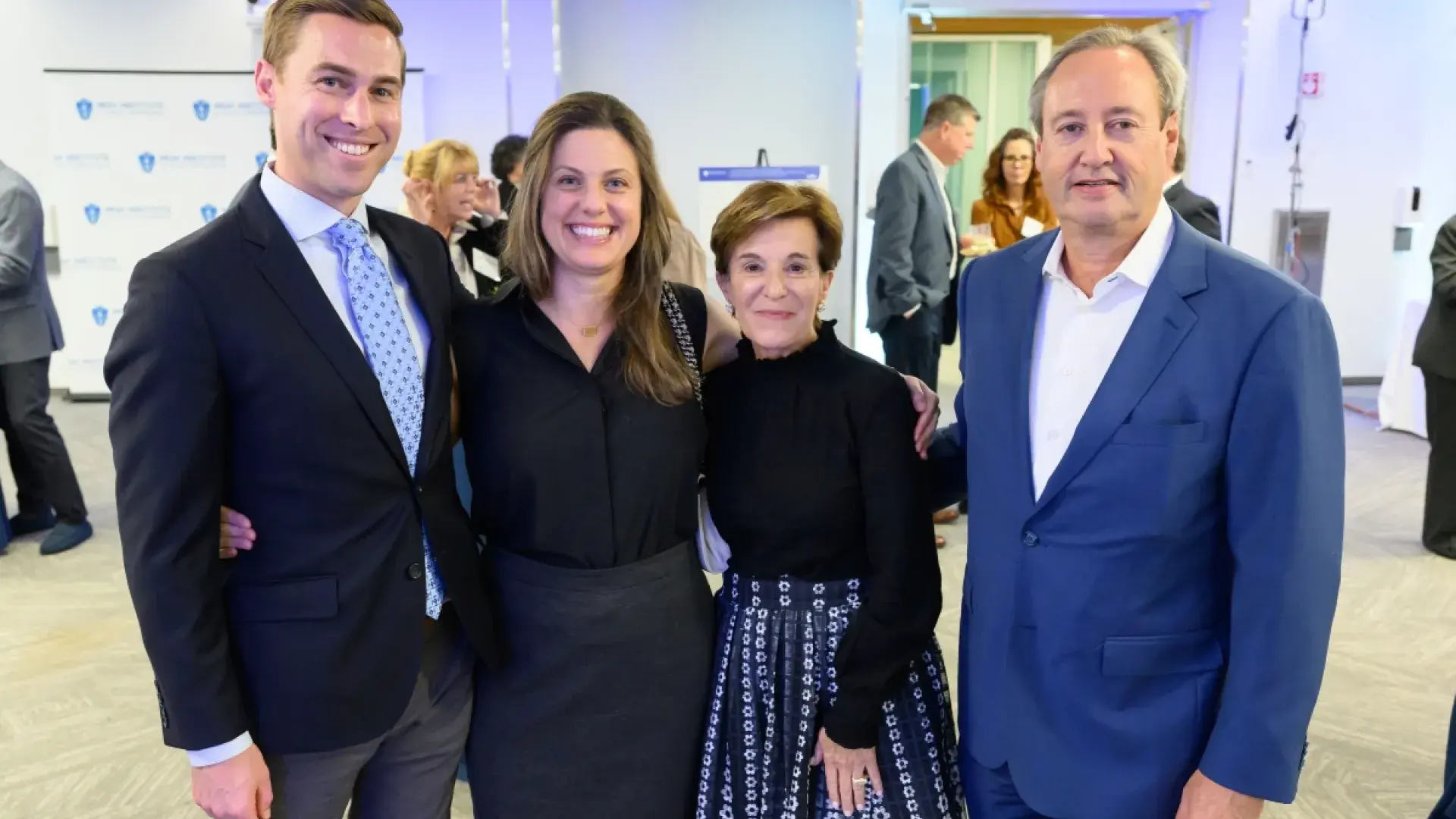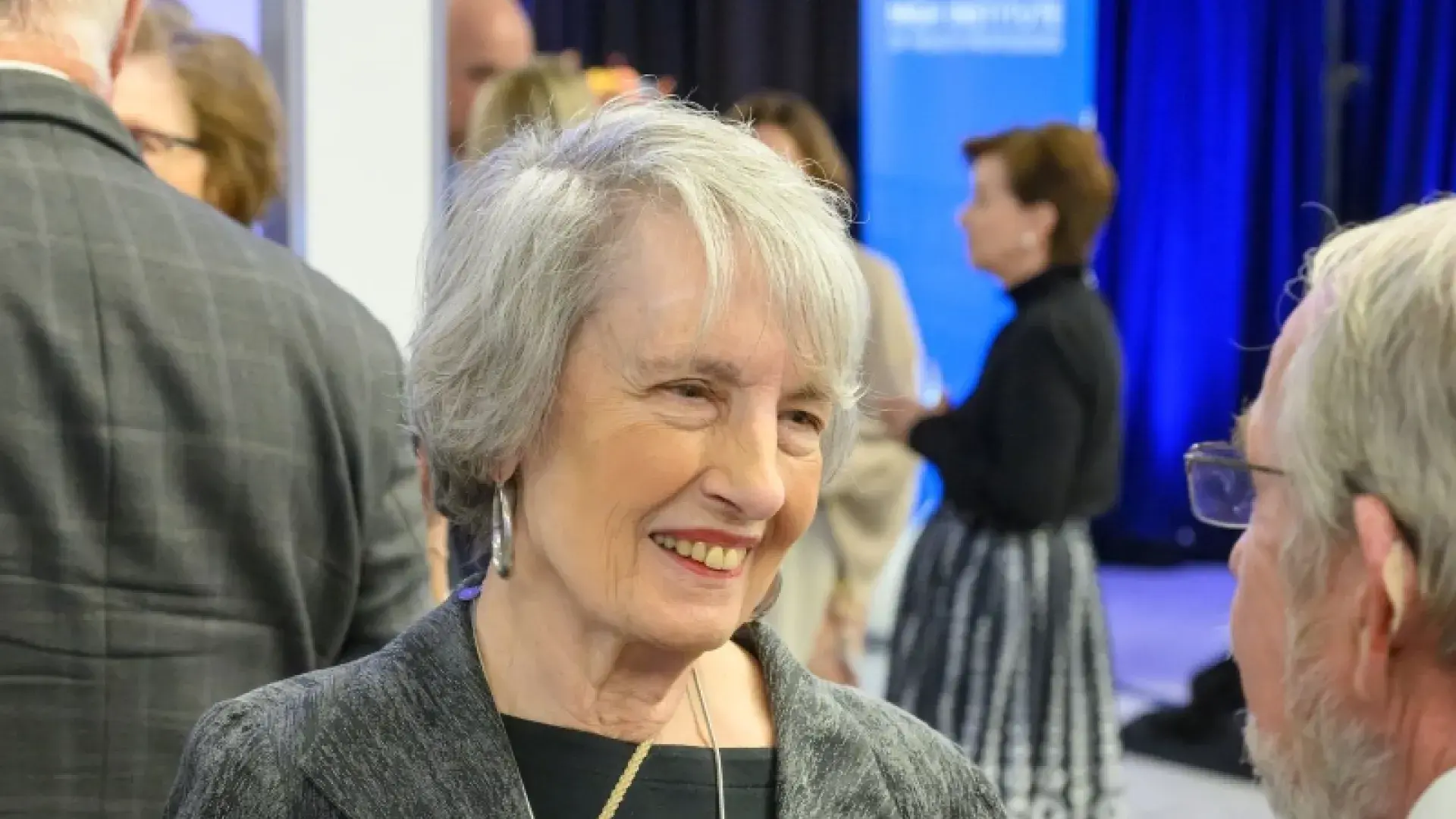
Annual fundraising event explores how the MGH Institute is using technology to improve healthcare
When healthcare experts discuss how to improve patient care, technologies like artificial intelligence rises to the top of the list. And when it comes to teaching the next generation of practitioners how to use technologies, the MGH Institute will be a part of that discussion.
“The IHP Today: Innovating Healthcare,” the MGH Institute’s annual scholarship fundraiser, discussed that topic on October 26. An audience of faculty, students, alumni, and friends of the IHP heard from a panel of experts on how AI and other innovations are fast becoming a game changer in finding efficiencies for healthcare workers that can translate into improved patient experiences and outcomes.
For Institute President Paula Milone-Nuzzo, that means it’s critical to educate students to be at the forefront of innovation occurring at an exponential pace.
“Having students engage in entrepreneurial thinking and creativity as part of their interprofessional curriculum will prepare them for a future in which they can help shape their environment instead of being defined by it,” said Dr. Milone-Nuzzo in her remarks to kick off the event. “Above all, the most important reason for healthcare innovation is to help people. Whether it's through new treatments, new technology, or new processes, healthcare innovations will give health professionals and healthcare organizations the tools they need to focus more on the needs of their patients and to help people improve their lives.”
The panel was moderated by Chris Coburn, Chief Innovation Officer at Mass General Brigham, of which the Institute is the healthcare system’s only academic member. It included Dr. Nara Gavini, the IHP’s Associate Provost for Research; Dr. Julie Keysor, Director of the IHP’s Behavior, Abilities, and Technology (B-ABLE) Lab; and Dr. Marc Succi, an attending radiologist and Associate Chair of Innovation and Commercialization at MGB.
Coburn began the panel segment by detailing the ways technology is rapidly accelerating discovery and improvements in healthcare. They include telemedicine to provide individual real-time health data, AI to analyze medical data to aid diagnostics and develop treatment plans, machine-learning algorithms to help identify diseases and predict outcomes by using large data sets, and smart wearables that are increasingly incorporating heart rate monitoring, ECG tracking, and sleep analysis.
“We will delve into the challenges and opportunities presented by these innovations, including the ethical considerations surrounding their impact on healthcare education, accessibility, affordability and equity, and most importantly, the work of the Institute and MGB are doing to lead innovation in health care,” Coburn said, “to envision a future where health care is not only more effective and efficient, but also more compassionate and inclusive.”
While many people are concerned about how these rapidly growing technologies will affect the roles of healthcare practitioners and how patient care is delivered, Keysor is not among them.
“I think that the technology is not going to replace us,” said Keysor, whose research focuses on the interface of rehabilitation science on patient medicine and technology and the integration of behavioral change to promote evidence-based rehabilitation strategies treating patients in their homes. “I think it's really going to amplify what we can do and augment it. And there's a lot to say about what we all do at the Institute and the opportunity of looking at how can we be more effective. This is a real key area for us to evolve and grow in and really think about what is the core competency of a digitally competent clinician. Data is going to be a huge part of that and we need to know how to curate it and how to use it.”
Gavini, who said the Institute’s research is the fastest-growing enterprise within the MGB system, gave several examples of how the school currently is working on implementing technology to advance healthcare. He mentioned students who are using big data to address the health disparities issues and faculty who are using data sets to help identify Alzheimer’s disease earlier. He also listed four faculty with posters in the room on how they are using technology: Dr. Teresa Kimberley, Director of the Brain Recovery Lab; Dr. Kathy Lyons, Director of the Cancer Rehabilitation (CaRe) Lab; Dr. Jordan Green, Director of the Speech and Feeding Disorders Lab; and School of Nursing Associate Professor Dr. Clara Gona.
“This is the future of the IHP,” Gavini said.
Succi spoke about how implementing data promises to help reduce burnout among healthcare workers. “If you're a nurse or a [physician assistant] and you're taking a note on a patient, we now have tools leveraging AI that could actually listen to you talking to a patient and record that note in a structured way – one for the patient, one for the referring physician, and one for the insurance company,” Succi said. “And that's a huge generational leap in time management.”
Along with discussing the future of how healthcare is delivered, the night focused on current students who will be future healthcare employees, and how to help fund their education.
Leah Rothchild, who is in her third year of the Master of Science in Nursing program, told the audience of how not receiving adequate care as a teen led to a decade of being in and out of substance abuse treatment facilities. After graduating college and becoming a social worker for a few years, she decided becoming a pediatric nurse practitioner would allow her to make a larger difference with patients. Thanks in part to receiving the Mary Flannery Caira award and scholarship through the Massachusetts General Hospital Nurses’ Alumni Association, she will complete her IHP education next year and begin her new career.
“My ultimate goal is to guide children and adolescents to optimum physical and mental health,” said Rothchild, who said she used some of the scholarship to travel to Uganda and Malawi to pursue her other passion of global health. “I anticipate that one day, I will see an adolescent patient who reminds me of me at that age, and when that adolescent asks for help, I will be ready to meet them with the compassion and care I needed and did not receive.”
